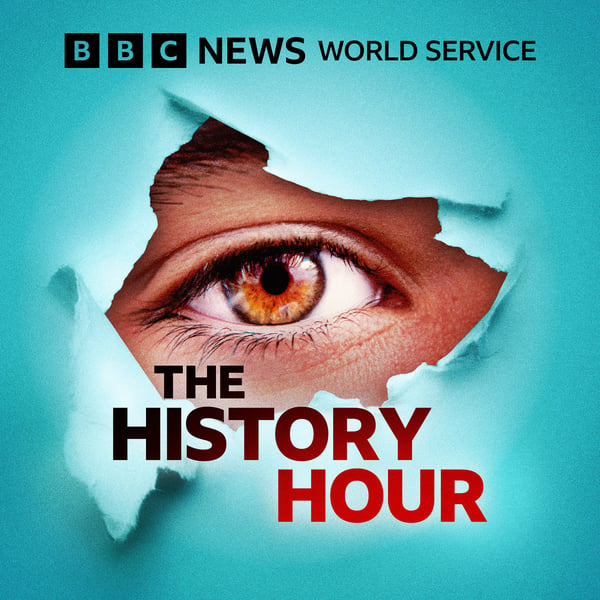South American revolutionaries and the first Aboriginal MP
The History Hour
BBC
4.4 • 879 Ratings
🗓️ 31 May 2024
⏱️ 51 minutes
🧾️ Download transcript
Summary
A warning for Aboriginal and Torres Strait Islander listeners - this programme contains the names and voices of people who have died.
Max Pearson presents a collection of this week’s Witness History episodes from the BBC World Service.
First, the story of Brazil's most wanted, Carlos Lamarca. He was a captain who deserted the army in the 1960s and joined in the armed struggle against the military regime in the country.
Then, Bill Booth - historian of twentieth century Latin America at University College London - joins Max to talk about other revolutionary figures from South America.
Next, the story of Australia's first Aboriginal MP and how he fought for indigenous rights.
Plus, the 90th anniversary of the first ever quintuplets, the 1984 Apple commercial that changed advertising and the 2014 Flint, Michigan water contamination crisis.
Contributors: João Salgado Lopes - friend of Carlos Lamarca. Bill Booth - historian of twentieth century Latin America at University College London. Joanna Lindgren - great niece of Neville Bonner. Jeneyah McDonald - Flint, Michigan resident. Dr Mona Hanna-Attisha – a paediatrician and professor of public health, Michigan. Mike Murray - former Apple marketing manager.
(Photo: Subcomandante Marcos pictured in 2001. Credit: Getty Images)
Transcript
Click on a timestamp to play from that location
| 0:00.0 | Hello and welcome to the History Hour Podcast from the BBC World Service with me Max Pearson |
| 0:09.7 | the past brought to life by those who were there. This week from 90 years ago the |
| 0:14.8 | bittersweet story of the world's first recorded surviving quintuplots. |
| 0:18.8 | We're on our way to school and my girlfriend lived next door to the aunts. She stopped in and told us there were five little babies born next to her home there. |
| 0:30.0 | Plus from the US, the contaminated drinking water scandal that hit Flint, Michigan. |
| 0:34.4 | It smelled like you were stuck inside of a swimming pool full of chlorine water |
| 0:40.9 | with closed doors, closed windows and no ventilation. It was that strong of a |
| 0:45.1 | chlorine smell. And the first Aboriginal member of the Australian Parliament. |
| 0:49.7 | He usually have a cigarette in the left hand while he was driving and on the right hand he'd have his microphone and it would go through the loud haler and people would know Neville Bonner was in town. |
| 1:00.4 | That's all coming up later in the podcast, but first we're going back to the middle of the |
| 1:04.7 | last century when several South American countries were involved in rebellions, revolutions, |
| 1:10.2 | and military coups. The situation was exacerbated by Cold War tensions between East and West. |
| 1:16.4 | In Brazil, the left-wing president, Jean-Goulad, was overthrown in a military coup in 1964. What followed was years of repression and for one |
| 1:26.6 | army captain Carlos Lamaca that repression of the Brazilian people was not acceptable. |
| 1:32.1 | He decided it was time to fight back. |
| 1:34.3 | Vicky Fancum brings us his story. |
| 1:39.5 | We gave each other a big hug. His last words to me were, there to fight, there to win. |
| 1:49.0 | Joao L'Eau Pézaldaud, talking about his final moments with his friend Carlos Lamaca. |
| 1:56.5 | Lamaca was born in Rio de Janeiro in 1937. |
| 2:01.0 | His mother was a housewife and his father was a shoemaker. From a very young age he wanted to be a soldier inspired by the novel War and Peace. |
| 2:10.0 | At 17 he enrolled as a cadet and from there went to the renowned a Gulesh-Negresh military academy in his NJ. |
| 2:18.6 | His military record shows he was a crack shot. |
... |
Please login to see the full transcript.
Disclaimer: The podcast and artwork embedded on this page are from BBC, and are the property of its owner and not affiliated with or endorsed by Tapesearch.
Generated transcripts are the property of BBC and are distributed freely under the Fair Use doctrine. Transcripts generated by Tapesearch are not guaranteed to be accurate.
Copyright © Tapesearch 2025.

